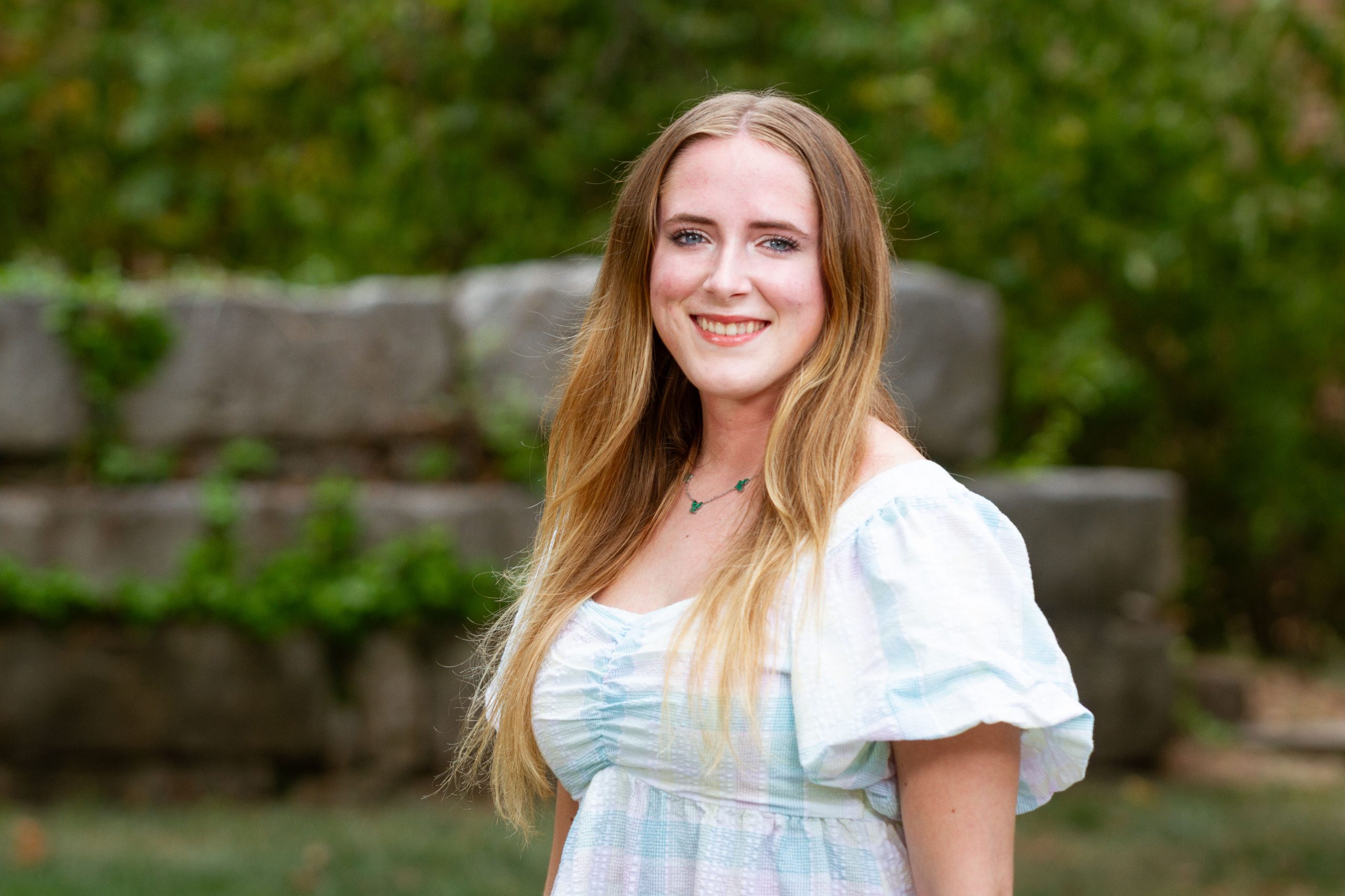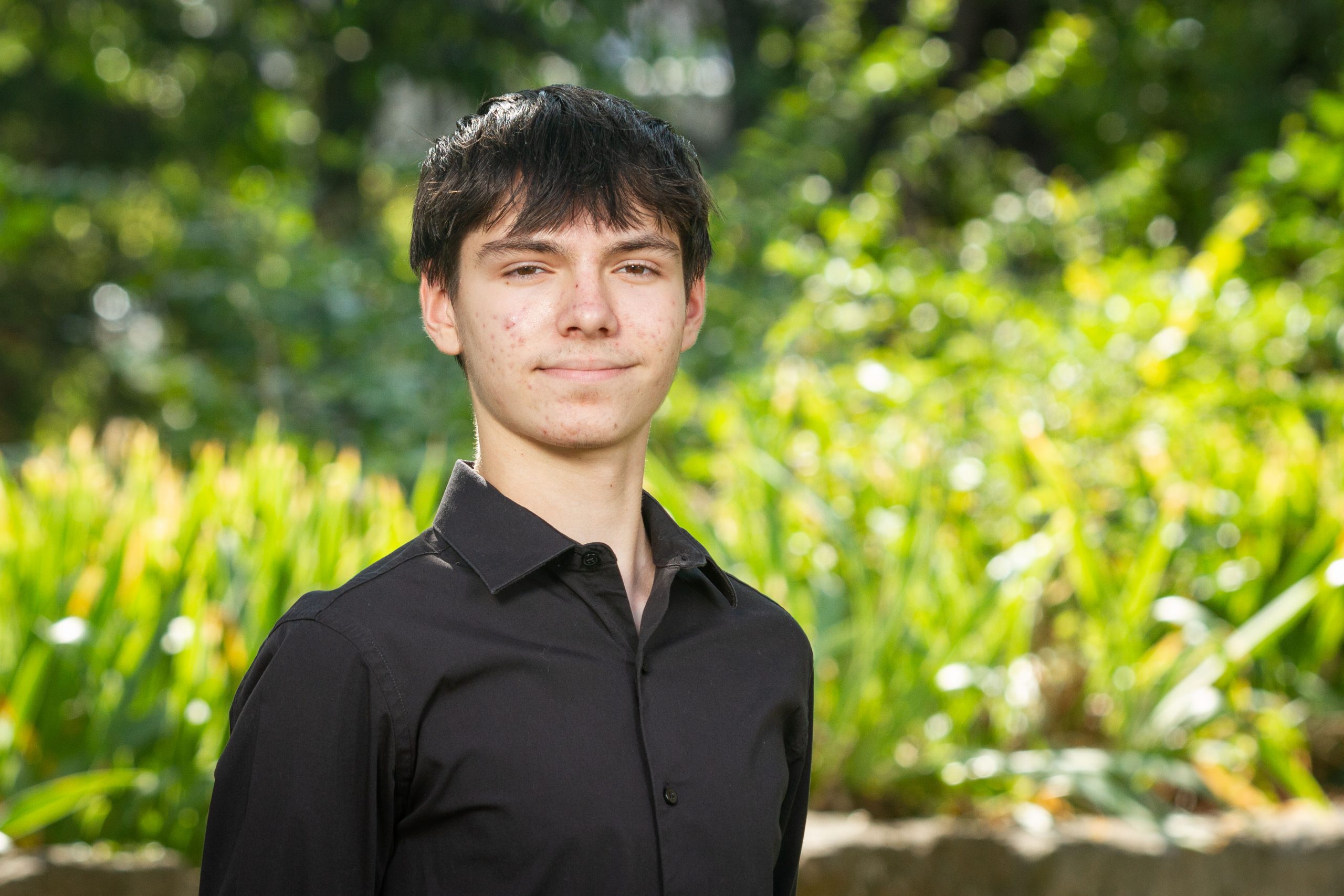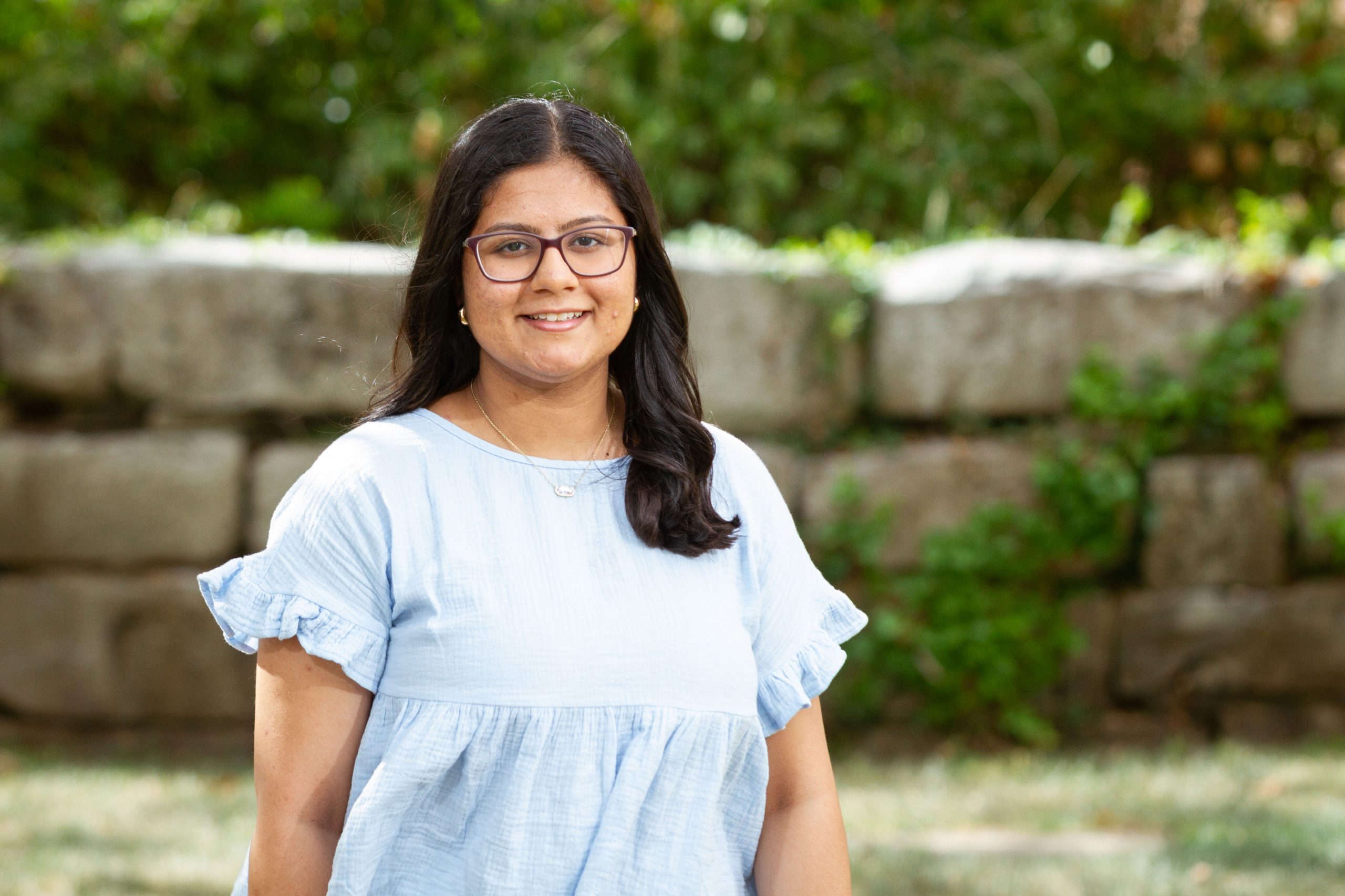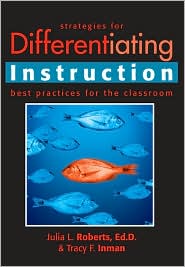[Greece10] Video Blog: Academy Director Tim Gott Shares His Thoughts on the Adventure Thus Far
January 6, 2010 | International, News, People, Staff | No Comments

July 4, 2025

June 5, 2025

May 5, 2025
January 6, 2010 | International, News, People, Staff | No Comments

by Tim Gott, Academy Director
What will the future look like? I have been asking myself that question a lot these last few days. It has been quite a week. I have had the pleasure of meeting with peers from Vanderbilt, of discussing opportunities with leaders and decision makers from other state universities, of exploring potential partnerships with a leading industry in the Commonwealth, and of viewing a sample of the incredible scientific legacy of one of our finest national laboratories. Each experience has fueled a fire within me to spread a gospel of hope. We are living in one of the greatest times in history. The accumulation of knowledge, the depth of resources, and the amazing creativity of the human mind have never been more primed than this moment in time. Yet, we as a society have allowed ourselves to be distracted or discouraged from embracing this phenomenal opportunity.
As I walked through the offices of Lexmark and the labs of Oak Ridge, alongside students and colleagues, I was able to glimpse how far we have come in terms of technology and innovation in just the short span of my lifetime. Simultaneously, I envisioned what the future will hold in the hands of these students. I saw the light of promise in their eyes as they viewed the most powerful computer ever created and heard them discuss the next generation of possibilities. I was moved by the passion I saw in the present leaders of these organizations and how it infused the lives of these future world changers, inspiring them to believe in the abundance of potential before them.
With this bold vision, comes a responsibility. We who have seen the power of the present environment must convince those who have lost hope that the best is yet to come. We must equip this generation of young people to engage in creative and critical thinking, to ask the insightful questions, and to persevere through challenges and setbacks. We need to encompass them with a spirit of support and encouragement which will allow them to explore, to dream, to experiment, and yes, to stumble and fall. For it is in the arena of trial and error, failed attempts, and renewed efforts that we will find those concepts, ideas, and creations that will impact our lives in the days ahead.
What will our future look like? Cures for cancer and other illnesses? What new forms of communication and transportation will arise? What deeper understandings of our universe or the atom will we grasp? If we will take the time to learn from our past, we can see that the rate of change in our lives is exponential. In a relatively short time, we have embraced cell phones, internet, space travel, MRIs, and microwaves as common place. The next ten years will be mind-boggling. But the time is now, the place is here, and we are the ones who will do it. The challenge is before us. We have a choice: we can invest our time and energy in the meaningful work before us or we can waste our resources and the gains of our predecessors. Let’s choose wisely and pass a bright torch forward to the ones ahead.
November 9, 2009 | Alumni, News, Photos, Student Life | No Comments
October 23, 2009 | Alumni, News, Parents, Student Life, WKU | No Comments

The Gatton Academy wishes to invite current students, alumni and their families to our inaugural Homecoming Celebration on Saturday, November 7, 2009.
For some, it might be the first time you’ve returned since graduation. For others, come on over from your residence hall on campus amid WKU’s other Homecoming activities.
The Academy will provide a lunchtime tailgate for our guests. The tailgating menu will include barbecue with all the trimmings. Vegetarian options will also be available. Lunch will be served at 1 p.m. in the parking lot behind Schneider Hall.
If you are interested in attending the football game as WKU takes on Troy at 4 p.m., you may obtain tickets via the WKU ticket office by telephoning 1-800-5-BIG-RED.
Alumni and parents are kindly asked to RSVP online at http:///gattonhomecoming09.eventbrite.com no later than noon on Monday, November 2, 2009. Current Academy students need not RSVP.
We look forwarding to seeing you then as we celebrate the exciting things happening at the Gatton Academy.

Dr. Roberts and Inman were honored with the Legacy Book™Award for the Most Outstanding Book for Educators for Strategies for Differentiating Instruction: Best Practices for the Classroom (published by Prufrock Press).
The Legacy Book™Awards are recognized nationally and honor outstanding literature related to gifted children and their education. TAGT distributes nominated books to a nationwide panel of reviewers who evaluate the books according to their long-term potential for improving the lives of gifted youth.
“We are honored to have our book recognized on a national level,” Dr. Roberts said. “Our goal was to write the book to be useful to preservice teachers and teachers new to differentiation as they implement strategies to ensure that each student makes continuous progress.”
Dr. Roberts is the Mahurin Professor of Gifted Studies and executive director of The Center for Gifted Studies at WKU and the Gatton Academy of Mathematics and Science in Kentucky. Inman is associate director of The Center for Gifted Studies at WKU.
Other winners include Carol Fertig’s Raising a Gifted Child: A Parenting Success Handbook (also from Prufrock) as the Most Outstanding Book for Parents; Social-Emotional Curriculum with Gifted and Talented Students, edited by Dr. Joyce VanTassel-Baska, Dr. Tracy L. Cross and Dr. F. Richard Olenchak (Prufrock Press), as the Most Outstanding Book for Scholars.
Prufrock, the nation’s leading resource for gifted and advanced learners, also published Roberts’ and Inman’s book Assessing Differentiated Student Products: A Protocol for Development and Evaluation.
TAGT will recognize the Legacy Book™ Award honorees Dec. 3 during the First General Session of the annual TAGT Professional Development Conference: Growing their Gifts at the George R. Brown Convention Center in Houston. In addition, TAGT has invited the authors to present sessions during the conference.
Contact: Gifted Studies, (270) 745-6323; or TAGT, (512) 499-8248.
 The Center for Gifted Studies at WKU is hosting the 2009 Berta Seminar for Excellence in Education on Oct. 26-27.
The Center for Gifted Studies at WKU is hosting the 2009 Berta Seminar for Excellence in Education on Oct. 26-27.
An evening session for parents is scheduled for 6:30 p.m. to 8 p.m. CDT Oct. 26 followed by an all-day professional development workshop for educators and administrators from 8:30 a.m. to 3:30 p.m. CDT Oct. 27. Both events will be held at the Carroll Knicely Conference Center on Nashville Road in Bowling Green.
Thanks to the generosity of the Berta family, these events are free and open to the public. Presenters Dr. Virginia H. Burney and Dr. Kristie Speirs Neumeister, experts in educational psychology relating to gifted children, will discuss the social and emotional needs of gifted young people.
During the parent seminar, Social and Emotional Characteristics and Issues of High Ability Children, Dr. Burney and Dr. Neumeister will discuss the characteristics of gifted children and associated (possibly problematic) behavioral manifestations of those characteristics. Tips for parents and teachers in assisting positive development will also be explored.
On Oct. 27, teachers will spend the day learning how the characteristics and needs of gifted children interact with school culture in Meeting the Social and Emotional Needs of the Gifted in School. Participants will practice strategies for meeting the needs of these students and for assisting others in understanding gifted children. Resources will be provided. EILA credit is available.
About the Berta Seminar: Thanks to the generosity of Vince and Kathleen Berta, this event is free and open to the public. The Bertas realized that gifted children had needs that came from their strengths and meeting those needs required both parents and teachers. The Berta Seminar brings in experts in the field of education to conduct seminars and presentations designed specifically for the parents of gifted children. And because educating gifted students requires teachers as well as parents, The Berta Seminar sponsors a professional development seminar for educators to learn how to better meet the needs of gifted young people in the classroom.
For more information, contact The Center for Gifted Studies, (270) 745-6323.

by Tim Gott, Academy Director
People are always talking about how much has changed in their lifetime. My grandmother is 95. She has seen some changes. Flight, a person on the moon, the phone evolution, television, microwave ovens, robots, medical technology, nanotechnology, calculators, computers, it can go on for days. Talking with her recently, she shared the awe of seeing all of these things develop over her time on this planet. It made me wonder: what are the next stages of change, how will it impact our lives, and who is going to lead the way?
As an educator for the past 25 years, my intentions have been to prepare students for this big adventure. However, we all know about good intentions. I have become increasing aware of the great chasm between what we are teaching students and what they are going to need to be successful in this ever-evolving global environment. Reflecting on this dilemma, here are a few thoughts about what is needed:
Many schools are beginning to explore these elements. The struggle is the mindset that we won’t be able to cover all that we have traditionally taught if we add anything else. The truth is we can’t do it now. Yes, there are certain fundamentals that must be taught. And we must embrace the exponential growth of new knowledge and experiences. It cannot be an either/or. The real shift is for education to stop being an information warehouse and dispenser and fully accept the role of being an equipper of skills that will enable students to be the masters of their own learning.
It isn’t a matter of “if” the next big innovation or discovery will happen; rather, it is about who will be prepared to make it. Unless we invest in this concept, our students will be spectators and passive recipients in this dynamic process. Our students deserve to be out on the edge, blazing the trails, breaking the molds, and raising the bar. Now is the time to act.
September 10, 2009 | Academics, Alumni, Student Success | No Comments
From the WKYU-FM website:
The Carol Martin Gatton Academy of Math and Science in Kentucky is now in its third year on the campus of WKU. Some of the best high school juniors and seniors take classes alongside WKU undergraduates, and engage in research projects with school faculty. After they graduate from Gatton, students can attend college anywhere. Kevin Willis has this report on the decision facing Gatton graduates: should they stay on at WKU, or pursue higher education elsewhere?
On Sept. 25, teachers, counselors, school leaders and parents are invited to attend Diversity and Developing Gifts and Talents, presented by The Center for Gifted Studies at WKU and board members of The Association for the Gifted of the Council for Exceptional Children.
During this daylong event, nine experts in the field of gifted education will discuss strategies for identifying gifted children of diverse populations and for developing their potential.
The keynote will be “Identification of Underrepresented Groups for Gifted Services” by Dr. Susan Johnsen of Baylor University.
Participants can attend such sessions as teaching twice exceptional students, communicating with families of diverse learners, addressing the needs of gifted students in rural schools and providing support to a diverse population of gifted students in a variety of settings.
The event will be held from 8:30 a.m. to 3:30 p.m. (Central time) at the Carroll Knicely Center, WKU South Campus. EILA credit is available. For information, click here or contact The Center at ![]()

![]()
![]()

![]()
![]()
![]()
![]()
![]()
![]()
![]() (270) 745-6323
(270) 745-6323![]() or gifted@wku.edu.
or gifted@wku.edu.
August 31, 2009 | Academics, News, Parents, Student Life | No Comments
KAGE Panel on High Ability Students from Gatton Academy on Vimeo.
Eight high school seniors at the Gatton Academy share their experiences as gifted students. Topics included many concepts: teacher practices in elementary, middle, and high school that were effective; challenges gifted students face; the importance of rigor and research; and opportunities afforded by attending the Gatton Academy.